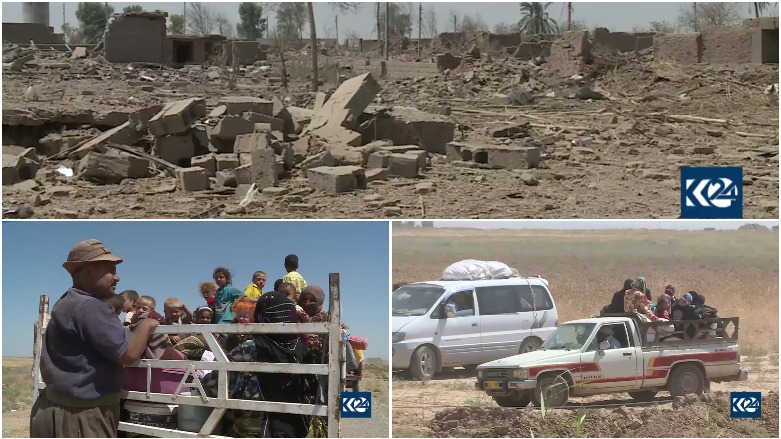Kakai minority in Kirkuk call on KRG, Baghdad, UN to protect them from IS

ERBIL (Kurdistan 24) – Members of the Kakai religious minority in the province of Kirkuk on Thursday called on the Kurdistan Regional Government (KRG), the federal government of Iraq, the United Nations (UN), and civil society organizations to protect them from being targeted by the Islamic State (IS) in the disputed province.
In a statement received by Kurdistan 24, Kakais in Kirkuk state that their lives are in danger as the jihadist group continuously target them in the south of Kirkuk.
They stated that IS executes and kidnaps civilian members of their community there, primarily in the villages of Kobani, Ali Sara, Topzawa, Zanqr, and Haftaghar.
Kakai follow the religion of Yarsanism, founded in the late 14th century in what is now Iran, and are generally considered to be Kurdish in ethnicity.
Although Iraq declared victory over IS in December 2017, the extremists continue their guerrilla-style attacks, assassinations, and bombings across the country.
Kakai villages, mostly located in southern Kirkuk’s Daquq district, have been under prolonged attack by the jihadist group.
Soon after the emergence of IS in 2014, the Kurdistan Region’s Peshmerga and other security forces protected most of Kirkuk, including portions of the embattled southern areas, from IS attacks. Following the region's controversial independence referendum in September, Iraqi forces and Shia militias drove Kurdish forces from Kirkuk and other disputed territories.
The security situation deteriorated considerably in the following months, with IS activities continuing to be on the rise in the provinces of Kirkuk, Diyala, and Salahaddin, including ambushes, kidnapping, suicide attacks, and execution-style killings.
“Since Oct. 16, except cities and towns, almost all the villages have been open to terrorists, especially in Daquq area,” Sami Kakai, a member of Daquq district council, told local Kurdish news outlets on Thursday.
Kakai mentioned that there is a large forest near Daquq that had become a hideout for the jihadist group. He accused Iraqi forces of failing to clear the area from IS militants, leading to the increase of security incidents in the region.
Before, he said, Peshmerga forces were protecting the area, including the pre-dominantly Arab villages because the Kurdish forces had established outposts every 500 meters. After Oct. 16 attack and deployment of Iraqi forces, however, people in the area no longer feel protected and have started to flee.
“Terrorists publicly enter the villages to buy supplies and return to their areas,” Kakai continued. “A few days ago, some terrorists went to Haftaghar and asked a shopkeeper to open his shop for them to buy goods, but the shopkeeper refused to do so. A terrorist shot him to death.”
Recently, Shakhawan Abdulla, a Kurdish lawmaker from Kirkuk in the Iraqi Parliament, told Kurdistan 24 that an essential part of the problem is that the Iraqi forces brought to Kirkuk from outside the province have different ethnic and religious backgrounds.
“When a foreign force,” unguided by locals, takes the task of providing the security of a region “they can’t protect it,” he said.
Editing by John J. Catherine
